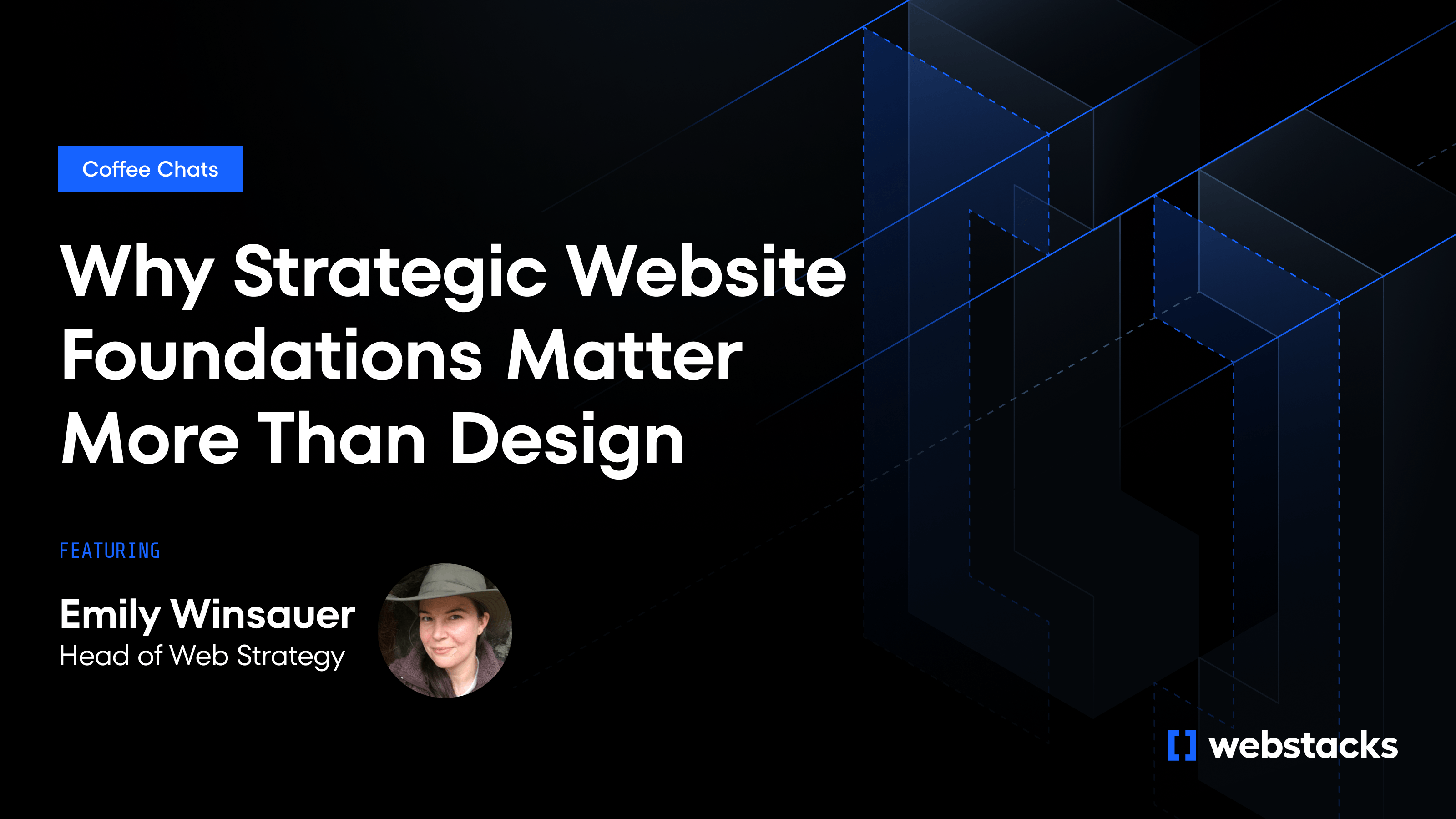Entering the crypto universe is daunting, but it doesn't have to be.
Besides Crypto Twitter, the first place we recommend newcomers start is subscribing to crypto podcasts that discuss the projects and niches that interest them.
Whether you're a Bitcoin maximalist, an aspiring NFT creator, a privacy geek, or a DeFi degen, podcasts are an incredible wellspring of information.
Let's explore the podcast and audio-only crypto marketing tools and strategies blockchain startups are using to build their audience.
Podcast marketing and audio-only apps like Clubhouse and Twitter Spaces offer crypto startups and blockchain companies amazing opportunities to connect, educate, and build their audience.
After joining Crypto Twitter, the second place we recommend newcomers to start is by following podcasts with leaders in the industry.
Shows like Jeremy Allaire’s The Money Movement, Tristan Yver’s FTX Podcast, and The Pomp Podcast provide lots of original thought leadership and research.
Anchor: The Easiest Way to Start a Podcast
Hands down the easiest way to create and launch a podcast is Anchor.
Before you start building out your profile, it's best to make a few key decisions:
- Podcast name - will it be "the company name + podcast" or something original?
- Branding - will it be the same as your company, or function as a sub-brand?
- Goal - what will listeners gain by subscribing?
- Description - what is a single-sentence description that will compel listeners to tune in?
Once your team has agreed on the aforementioned items, you can start creating your podcast on Anchor. It's this simple:
- Create an account
- Brand your profile
- Edit your
Believe it or not, that's it.
Within a few business days, you'll be cleared to distribute your podcasts on Spotify, Apple, Google Podcasts, Breaker, and more.
Your next job is where the real fun starts: recording your first episode!
Crypto Podcast Topic Ideas
Now that you've created your podcast on Anchor, you need to come up with some entertaining or educational topics to talk about.
Because we're huge fans of crypto podcasts, here's a list of people to interview:
1. Your Team's Founders and Core Contributors
If you're starting from scratch, you need to use what is available.
Interviewing your team not only is a natural and easy first step, but it allows your early adopters to "meet" the team behind the project.
You can talk about just about everything:
- Their professional background
- How they got into crypto
- Their role with the project
- Their project's goals, use cases, and roadmap
- Their future outlook on the industry
- Advice to newcomers in the space
Offering an inside look at the team not only humanizes your brand and educates your fans, but it will also help you test and refine your podcasting process.
2. Contributors in your Ecosystem
Following the advice in step one, the next natural group of people to interview are builders in your ecosystem.
These collaborators could include:
- Community contributors (e.g. founders of a DeFi protocol on your layer 1 blockchain)
- Partner protocols that you're integrating with (e.g. oracles like Chainlink or Band)
- Influencers and traders (e.g. vocal supporters of your project or big-time traders)
Start from the innermost circle while you're still figuring your podcast out, and slowly expand out to your broader ecosystem.
As you build experience and subscribers, it will be a lot easier to convince big names to donate their time to appear on your podcast.
3. Crypto Investors
Seasoned investors are great guests because they understand the macroscopic view of crypto, and can communicate it in a straightforward language your audience can digest.
If you've received funding, congratulations! Not only are you getting paid to do what you love, but now you have a whole set of people to interview and people who can make introductions to their network of investors and crypto influencers.
Investor interviews don't require the fund manager or high-level partner either. While these are great, having a knowledgable analyst or senior associate who is passionate about what you are building will make for a great episode.
Alternative Crypto Podcast Topics
There are tons of other topics you can talk about, it's not just interviews:
- Market movements and price predictions
- Protocol improvement proposals
- Roadmap reviews and milestone announcements
- Industry recaps (i.e. what's new in your niche)
- Debates with competing protocols
Now that we have your topics, let's cover a few podcast recordings and marketing tactics to extract the most value from your time and effort.
Podcast Marketing Tips
With 20% of people in the U.S. listening to podcasts on a weekly basis, and total listenership expected to reach 100 million podcast listeners in the U.S. by 2024, podcasting should be on everyone’s radar.
Here are a few tips to start your podcast marketing strategy and start getting your company out there:
- Don’t go cheap on your audio equipment - Your listeners will thank you
- Record your podcasts over Zoom or in-person with professional cameras
- If recording on Zoom, ask your guests to record audio locally as a backup
- Publish video recorded podcasts on YouTube to extend your marketing reach
- Timestamp important conversation topics for YouTube’s description
- Transcribe podcasts and repurpose the content into blog posts
- Synthesize podcast takeaways as Twitter threads
- Pitch hosts of other podcasts why they should invite your founder on their podcast
- Distribute your new podcasts in communications channels like Discord and Telegram
As you can see, your podcast is just one content type you can create.
By recording your podcasts and transcribing the conversation you can publish interviews on YouTube, blog and email recaps on Substack, and cliff notes on Twitter.
Think about this: the average person speaks 125 words per minute.
That’s essentially one, long-form, 1,500-word, blog post every 12 minutes!
If you talk for an hour, you have more than a month's worth of blogs to publish.
Top Crypto Podcasts
Our time to consume a 45-minute podcast at 1.5x speed is limited, so we need to be discerning about what podcasts to listen to each week.
We chose the following crypto podcasts based on the quality of guests, breadth of topics, depth of content, and overall quality (audio, music, ad reads, etc.).
Note: this list is in no particular order.
- a16z Podcast with @a16z
- The Defiant with @camirusso
- Up Only with @cryptobain and @ledgerstatus
- Decrypt Daily with @thedecryptdaily
- The Scoop with @fintechfrank
- The Solana Podcast with @aeyakovenko
- The FTX Podcast with @jackshaftoes
- The Money Movement with @jerallaire
- The Pomp Podcast with @apompliano
- Unchained with @laurashin
- Bankless with @ryansadams and @trustlessstate
- What Bitcoin Did with @petermccormack
- The Wolf of All Streets with @scottmelker
- Coin Gecko Podcast with @bobbyong and @tmlee
For general knowledge, check out Decrypt Daily or the Pomp Podcast. For DeFi on Ethereum check out The Defiant, or The Solana Podcast to track Ethereum's leading competitor. For markets and investments check out The FTX Podcast, and for stablecoins and global payments, don't miss The Money Movement.
Clubhouse Marketing
Clubhouse is a voice-only, drop-in audio platform that enables users to create private or public rooms and host live interviews, Q&As, or organize town halls.
Why is Clubhouse effective?
Clubhouse's one-to-many communication platform gives fans direct access to normally off-limits investors, founders, and builders. It’s also a relaxed atmosphere that discourages recording which allows speakers to be more candid.
Lastly, there is a sense of exclusivity and scarcity of knowledge since the platform in the early days was invite-only, iOS-only, and had no replay functionality.
Clubhouse Marketing Strategies
Here are a few successful ways we’ve observed crypto startups and blockchain companies use Clubhouse to connect with and build a vibrant community:
- Live interviews
- Q&As
- Town Halls
- Live podcasts
- Press conferences
- Market recaps
- Launch parties
- Announcements
- Meet and greet
Companies like Circle have moved The Money Movement podcast to a live format on Clubhouse, DeFi protocols like Compound use Clubhouse to host community calls, and trading platforms like FTX frequently discuss market movements.
Top Crypto Clubhouse Influencers
If you have notifications turned on, each time one of the people you follow on Clubhouse are speaking in a public room, you will receive a push notification and the opportunity to drop in.
This list was built based on the person's Clubhouse followers, activity, and the quality of their conversations (e.g. audio quality, breadth, depth, and intelligibility.)
Note: this list is in no particular order.
- Andre Cronje (@andrecronje)
- Sam Bankman-Fried (@sbf)
- CMS Patrons (@cmsholdings)
- Pomp (@pomp)
- Stani Kulechov (@stanikulechov)
- Sriram Krishnan (@sriramk)
- Santiago Santos (@santiagoroel)
- Jeremy Allaire (@jerallaire)
- Fintech Frank (@fintechfrank)
- Jason Yanowitz (@jasonyanowitz)
- Robert Leshner (@lesh)
- Balaji Srinivasan (@balajis)
- Meltem Demirors (@meltem)
- Ben Sparango (@bennybitcoins)
- Ryan Selkis (@twobitidiot)
- Tom Shaughnessy (@toms119)
- Anatoly Yakovenko (aeyakovenko)
- Kyle Samani (@kylesamani)
- Nik Kunkel (@Nikkunkel)
- Fred Ehrsam (@fred)
- Chamath Palihapitiya (@chamath)
If you're new to Clubhouse, follow these people, turn on "all" notifications, and whenever they host or enter a room, you'll receive an alert to drop in and listen!
Twitter Spaces
On the heels of Clubhouse's massive success, Twitter announced a competing drop-in audio chat app back in December of 2020.
As of May 3rd, 2020 anyone with over 600 followers can host a Space.
Advantages of Twitter Spaces vs. Clubhouse
While Clubhouse demonstrated drop-in audio apps can be successful, they had limitations that weren't easy for a startup to overcome fast enough before an established player like Twitter stepped in to offer a legitimate competitor.
Here are a few advantages of using Twitter Spaces instead of Clubhouse:
- Crypto Twitter is massively popular with builders, influencers, and investors
- Startups don't need to rebuild their audience on a new platform
- Twitter's platform-agnostic app (i.e. it's available on iOS and Android)
- Promoting your conversation via Twitter is broader than Clubhouse's options
For now, the market is still determining whether either of these platforms or formats are here to stay, but while the market's making up its mind, it's worth investigating as another social media marketing channel for your crypto marketing team.
Crypto Podcast Marketing: In Summary
Podcasts are an amazing tool for expanding your blockchain project's network, user base, and most importantly, educating the general public.
Regardless of the platform you use, if you focus on creating exceptionally interesting content, publishing high-quality audio and video content, and post with regularity, you will attract an army of loyal subscribers.
Looking for a crypto marketing company to help promote your project? We got you! Schedule a meeting with our sales team, and let's talk!




